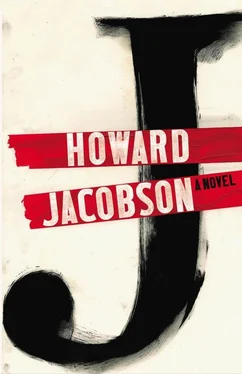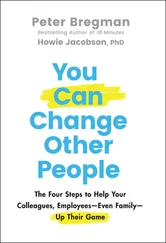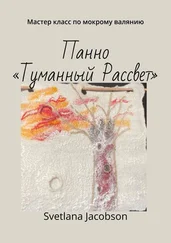‘Anyone would think Ahab’s tailing us,’ he said.
‘Ahab is tailing us,’ she told him. ‘Ahab’s always tailing us. That’s what Ahab does.’
It seemed to excite her.
‘Couldn’t we, on this occasion at least, just let him overtake us?’
She pushed her foot harder on the accelerator and wound down the window, letting the wind make her hair fly. ‘Where’s your sense of adventure?’ she asked.
Questions, questions. . Why so many feathers among the splintered furniture and ripped clothes, the broken toys, the smashed plates and fragments of glass, the bricks, the window frames, the pages torn from books holy and profane? Feathers from the mattresses hurled from upper windows, of course, but there are sufficient feathers in this single ruined garden to fill a mattress for every rioter in the city to enjoy the sleep of the righteous on. One feather won’t lie still. It curls, tickling itself, tries to float away but something sticky holds it to the child’s coat to which it has become attached. And where have all the hooks and crowbars appeared from? If the riots broke out spontaneously, how is it that these weapons were so plentifully to hand? Do the citizens of K sleep with crowbars by their beds? They bring them down with gusto, however they came by them, on the head of a man whom others have previously rolled in a ditch of mud and blood and feathers. A ritual bath. They rolled him and then wrung him out like a rag. The sounds of bones cracking and cries for help mingle with the furious triumphant shouts of murderers and the laughter of onlookers. Which prompts another question: when is wringing a man out like a rag funny?
i
ALL WAS NOT well about the heart of Detective Inspector Gofuckyourself. (It wasn’t to be supposed he hadn’t registered Kevern Cohen’s unspoken contempt. He had good ears. He could pick up an unspoken insult from three counties away. So face to face, and knowing nothing of the other’s squeamishness in the matter of obscenities, he was hardly likely to have missed what Kevern wished he would do to himself.)
He was overworked — that contributed to his malaise. In his lifetime, at least, the county had never seen so much serious crime. Murders, attempted murders, robberies with violence, infidelity with violence, a seething resentment of somebody or something that issued in behaviour it was difficult to quantify but which he described to himself as a breakdown of respect, in particular a breakdown of respect to him.
He had his theories about the underlying causes but knew to keep them under his hat.
Home for Gutkind was a small end-of-terrace house in St Eber, an inland town built around the county’s most important china-clay pit. A white dust had long ago settled on every building in St Eber, giving it, though entirely flat and shapeless, an Alpine aspect that the few visitors to the area had always found attractive. Gutkind’s cat Luther, who had been spayed and so had little else to do — ‘Like me,’ Gutkind sometimes thought — rolled around in this dust from morning to night, going from garden to garden to find more. He would be waiting for the detective inspector when he arrived home, his coat powdered as though with icing sugar, his eyelashes as pale as an albino’s, even his tongue white. Gutkind, who had no one else to love, sat him on a newspaper in the kitchen and brushed him down roughly, though he knew that he would be out rolling in someone’s garden again as soon as he had eaten. As with the cat, so with the man. Gutkind showered twice a day, more often than that at weekends when he was home, watching the particles almost reconstitute themselves into clay as they vanished in a grubby whirlpool down the plughole. It was a form of recycling, Gutkind thought, the clay that had coated his hair and skin returning to its original constituency underground. Otherwise he was not a recycling man. Too many of society’s ills were the result of the wrong sort of people with the wrong sort of beliefs finding ways of recycling themselves, no matter how much effort went into their disposal.
Disposal ? Detective Inspector Gutkind was not a brute but he believed in calling a spade a spade.
And he was not, in the privacy of his own home, however dusty, a man to say he was sorry.
He had no wife. He had had a wife once, but she had left him soon after they were married. The china clay was one reason she left him, and Gutkind had no desire to move (having to shower so many times a day confirmed his sense of what was wrong with the world), but the other reason she left him was his sense of what was wrong with the world. She discovered for herself what many of her friends had told her — though she hadn’t listened at the time — that life with a man who saw conspiracies everywhere was insupportable. ‘It’s your friends who have put you up to this,’ he said as he watched her packing her bags. She shook her head. ‘It’s your family, then.’ ‘Why can’t it just be me , Eugene?’ she asked. ‘Why can’t it be my decision?’ But he was unable to understand what she was getting at.
Returning home after interviewing Kevern Cohen — yet another person who showed him scant respect — Detective Inspector Gutkind showered, brushed down his cat, showered again, and heated up a tin of beans. He felt more than usually miffed. If I could put my finger on something, he told himself, just something , I would feel a damned sight better. But whether he meant put his finger on the motivation of a crime, the name of a criminal, why everything was so twisted from its purpose, why his life was so dusty and lonely, why he hated his cat, he couldn’t have said.
He had to have someone to blame. He was not unusual in that. What divided Homo sapiens from brute creation was the need to apportion responsibility. If a lion went hungry or a chimpanzee could not find a mate, it was no one’s fault. But from the dawn of time man had been blaming the climate, the terrain, fate, the gods, some other tribe or just some other person. To be a man, as distinct from being a chimpanzee, was to be forever at the mercy of a supernatural entity, a force, a being or a collection of beings, whose only function was to make your life on earth unbearable. And wasn’t this the secret of man’s success: that in chasing dissatisfaction down to its malignant cause he had hit upon the principle, first of religion and then of progress? What was evolution — what was revolution — but the logic of blame in action? What was the pursuit of justice but punishment of the blameworthy?
And who were the most blameworthy of all? Those whom you had loved.
When the sentimental blaming mood was on him — and tonight it roared in his ears the way the sea beside which you had once walked with a lover roared in a treasured seashell — he would climb the stairs to his attic, open an old wardrobe in which he stored clothes he no longer wore but for some reason could not bear to throw away, and pull out a faded periodical or two from the dozen or so which hung there on newspaper sticks, exactly as they had once hung in metropolitan cafés of the sort sophisticated town-bred men and women once patronised in order to drink coffee, eat pastries, and stay up to date with prejudiced opinion. Given that Gutkind kept these periodicals because they contained extended ruminations penned by his great-grandfather, Clarence Worthing, they were, strictly speaking, heirlooms, and exceeded the number of heirlooms — though no one knew exactly what that number was — any one person was permitted to keep. Not being a law exactly, this was not rigorously policed; everyone kept more than they admitted they kept, but, as a detective inspector, Gutkind knew he was taking a bit of a risk and indeed much relished taking it.
Читать дальше












